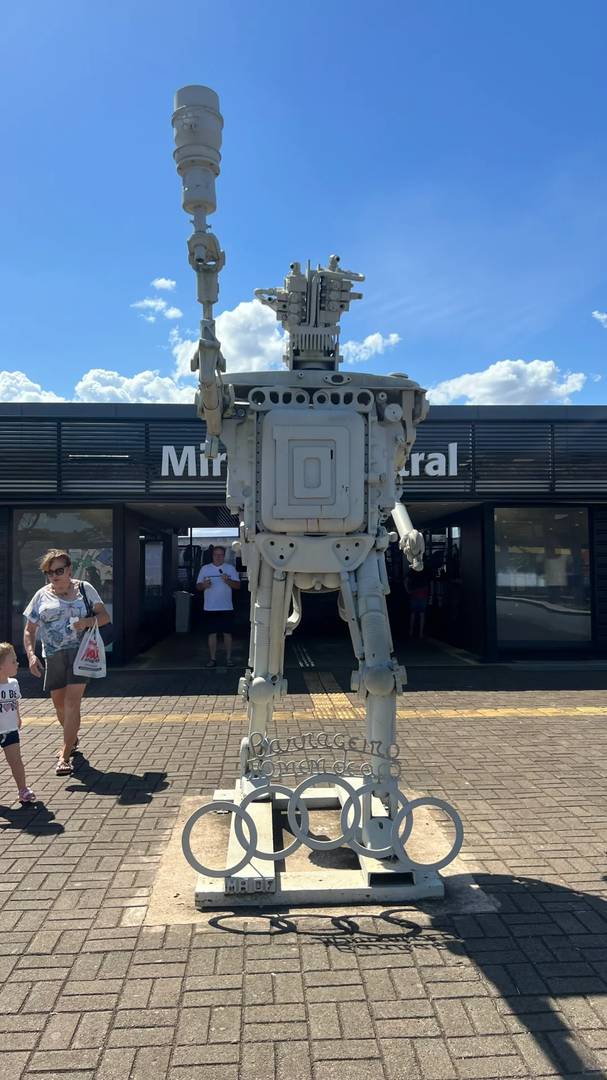As the bond between China and Brazil continues to grow stronger, an increasing number of Chinese individuals are making their way to Brazil—whether for work assignments, entrepreneurial ventures, or leisure travel. However, once in Brazil, challenges such as safety concerns, language barriers, and cultural differences inevitably come into play.

Having immersed myself deeply in Brazilian life for over a decade, I graduated from Anhembi Morumbi University in São Paulo. As someone who knows São Paulo like the back of my hand 🫢, I’d like to share some essential tips for navigating life in Brazil. If there’s anything I’ve missed, feel free to chime in with corrections or additions in the comments below!
1️⃣ **Upon Arrival**
Brazil, the largest country in South America, boasts São Paulo as its most economically advanced state—but it’s also one of the most chaotic regions (only slightly less disordered than Rio de Janeiro). For newly arrived visitors, local currency might not be immediately available.
It’s wise to exchange a small amount of cash at the airport, even though over 95% of establishments in São Paulo accept Visa cards. Having some cash on hand is still crucial for smaller transactions or emergencies. The exchange rate at the airport tends to be steep, so exchanging around 300-500 reais should suffice.
If you need more cash later, many local Chinese restaurants are happy to assist with currency exchanges. Additionally, newcomers without a local tax identification card won’t be able to purchase a SIM card directly. SIM cards *are* available at the airport, but activating data services requires assistance from the vendor—something especially important if you plan to stay longer.
Without a tax ID, you won’t be able to activate your SIM card even if you buy one after leaving the airport.
2️⃣ **Language**
Portuguese is Brazil’s official language, and English proficiency here remains alarmingly low—below 5%. Outside of airports, hotels, and high-end restaurants, fluent English speakers are rare. Immediately after landing, the language barrier becomes apparent—whether hailing a taxi or shopping.
Some drivers may take advantage of tourists who don’t speak Portuguese by overcharging or taking unnecessarily long routes. Once you reach your accommodation, store important documents securely in your hotel room and avoid carrying them around (to minimize risks in case of theft). Fortunately, hotel staff in Brazil rarely engage in theft, so your belongings are generally safe within your room.
Happy travels, and may these tips help smooth your journey through this vibrant yet complex country!
3️⃣ Safety Tips in Brazil
In Brazil, tipping is not a customary practice, though you’re free to do so if you feel the service deserves it. It’s entirely optional. At restaurants, the bill typically includes a service charge, but if you believe the service was unsatisfactory, you can choose not to pay this fee—it’s not obligatory.
When exploring São Paulo, areas further from the city center tend to be safer. While out and about, it’s wise to keep a low profile and avoid drawing unnecessary attention. If possible, refrain from carrying a bag, and when paying, avoid pulling out all your cash at once. Distribute your cash across different pockets or compartments for added security.
When using your card, always verify the amount before approving the transaction and ensure your card remains visible throughout the process. Many travelers have fallen victim to fraudulent charges, so it’s advisable to set a low limit for contactless payments.
Avoid using your phone while walking—this makes you an easy target. If you need to check your phone, step into a nearby restaurant, supermarket, or store. Additionally, refrain from using your phone inside your car, as there have been incidents of car windows being smashed to steal valuables. Be cautious of cyclists near your vehicle—they could pose a potential threat.
In the unlikely event of a robbery, stay calm, don’t resist, and avoid shouting or panicking. Robbers are usually after money, so hand over any valuables they request. Remember, your personal safety is the top priority.
If your belongings, such as a bank card or phone, are stolen, report the incident to the police immediately. They will provide you with a case receipt. With this document, you can approach your bank to freeze your card or request a refund for unauthorized transactions (a friend of mine successfully recovered funds this way).
While the police may take your case, follow-up actions are often limited, and apprehending the culprits can be challenging. Stay vigilant and prioritize your safety at all times. Due to space constraints, we’ll continue with more tips shortly…